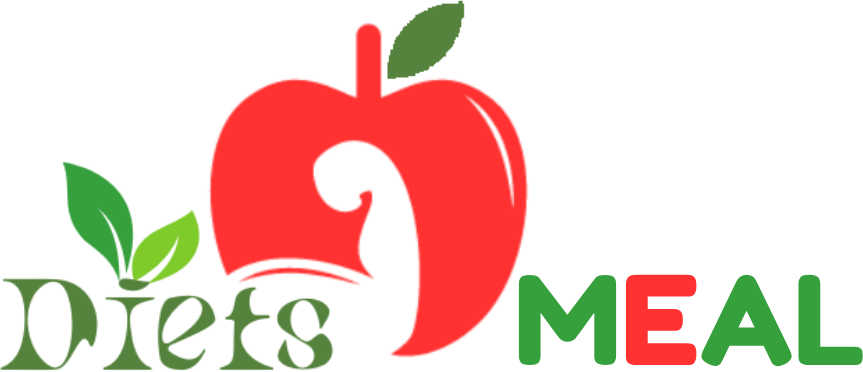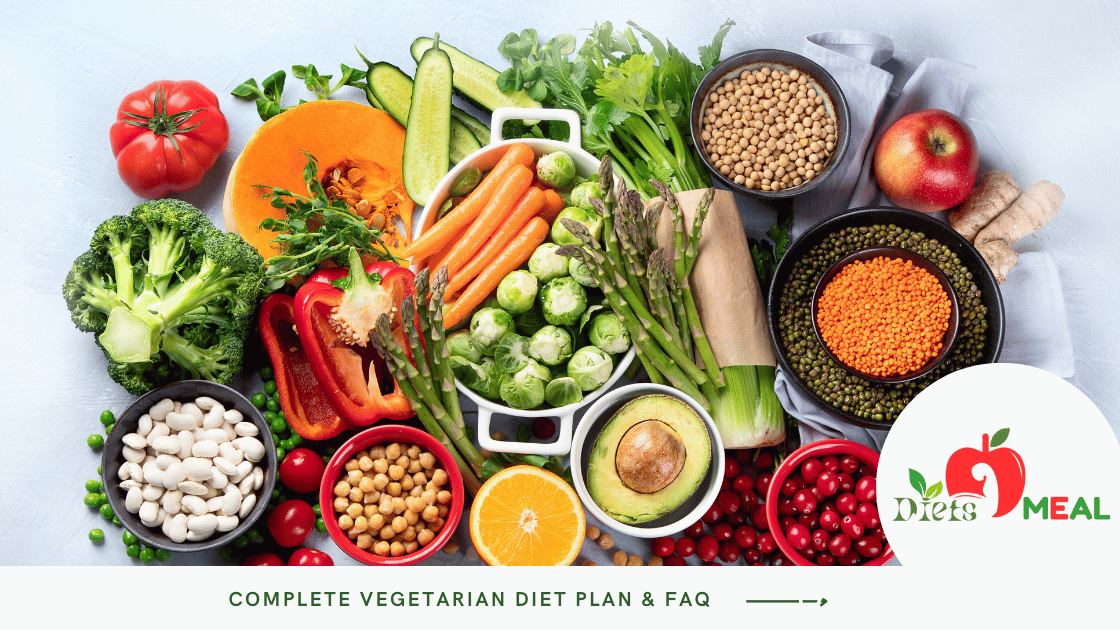Veganism is an eating plan that eliminates all sources of meat, fish and poultry products from its diet, with an emphasis on fruits, vegetables, whole grains, beans, nuts and seeds as staples; additionally it includes various plant-based proteins like tofu, tempeh and seitan for added nutrition.
An overall vegan diet is generally healthy for most people, yet it is still important to get sufficient calcium, iron, vitamin B12 and iodine from sources.
What is a vegan diet?
Veganism is an eating plan that excludes all products containing meat, fish and poultry from its diet. People choose this lifestyle for various reasons ranging from ethical concerns to health benefits – but eating vegan can still provide essential proteins, vitamins minerals and fiber nutrients needed by our bodies.
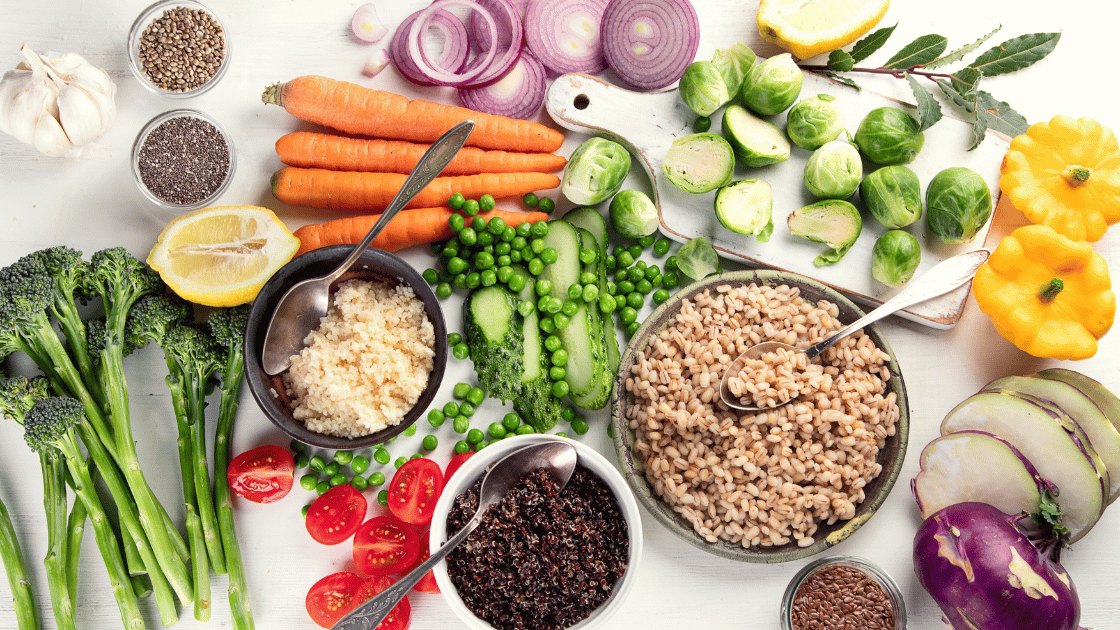 Vegan diets may present certain challenges when dining out. To make dining out less stressful, it’s wise to research ahead whether a restaurant provides vegan-friendly options; vegans can use apps or services dedicated to finding vegan-friendly eateries.
Vegan diets may present certain challenges when dining out. To make dining out less stressful, it’s wise to research ahead whether a restaurant provides vegan-friendly options; vegans can use apps or services dedicated to finding vegan-friendly eateries.
Veganism can be an effective way to manage weight, enhance health and protect the environment. A vegan diet has been associated with lower risks for heart disease, high blood pressure and arthritis; in particular it appears linked to lower levels of blood sugar in those living with diabetes; however more research needs to be conducted before this claim can be confirmed. In order to reap all these advantages successfully it’s essential that enough vitamin B12 and calcium is consumed – taking supplement may also be needed depending on individual circumstances.
What do i eat on a vegan diet?
Some individuals opt to follow a vegan diet either for ethical or health reasons, excluding all food containing meat, fish or poultry such as dairy and eggs; as well as products made with gelatin from animal bones. A vegan diet can be more healthful by restricting processed food consumption while providing more antioxidants than its alternatives.
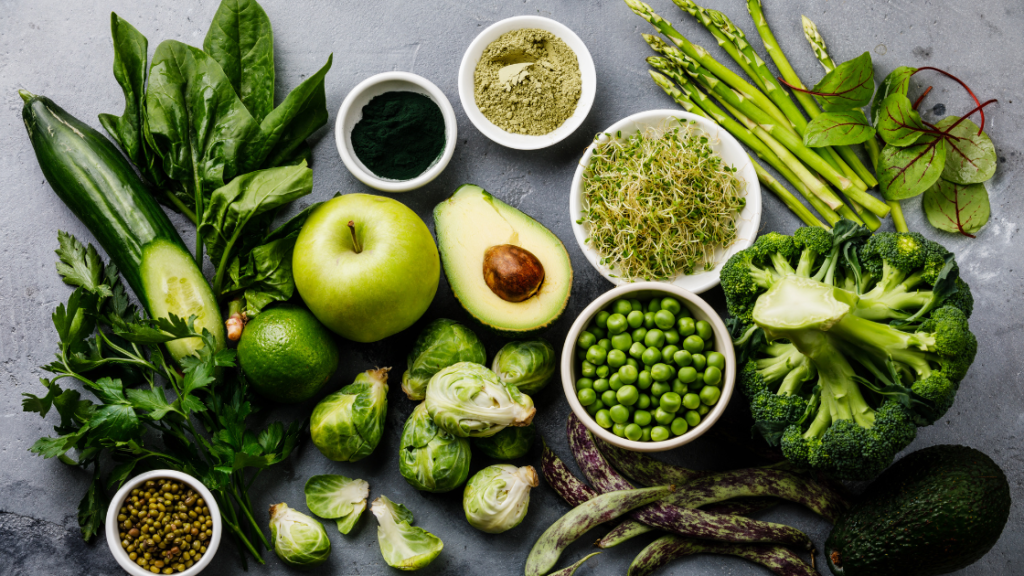 Vegan diets typically consist of fruits, vegetables, beans, nuts, seeds and whole grains as staples, as well as plant-based alternatives to milk, yoghurt and cheese products such as tofu, tempeh or seitan as sources of protein.
Vegan diets typically consist of fruits, vegetables, beans, nuts, seeds and whole grains as staples, as well as plant-based alternatives to milk, yoghurt and cheese products such as tofu, tempeh or seitan as sources of protein.
Attaining all your nutritional needs requires eating a wide range of food. Vegan diets may require taking additional supplements of vitamin B12, iodine, calcium, zinc and omega-3 fatty acids; breastfeeding mothers on vegan diets should additionally supplement with folic acid so their infant gets enough iron for development. Protein is vital in building and maintaining muscle mass so vegan diets should include plenty of protein-rich foods like nuts, seeds legumes quinoa amaranth kale to ensure adequate amounts.
What is in a vegan diet?
Veganism refers to eating food without meat, dairy products or eggs for ethical and environmental considerations as well as health reasons. People choose being vegan for various reasons that range from ethical arguments to physical wellbeing benefits.
An adequate vegan diet should provide all of the essential nutrients you require, but it’s still essential to take steps to ensure you’re getting enough protein, calcium, iron, vitamin B12, iodine and zinc – taking supplements can be one way to ensure this occurs.
If you aren’t vegan strictly speaking, it is still important to understand the hidden costs of certain foods. For instance, classic Oreos contain dairy and egg products; in addition, they’re manufactured on equipment shared with non-vegan cookies which could result in cross contamination; plus they use cane sugar which uses bone char as an antibacterial whitening agent.
A vegan diet rich in whole-foods foods such as fruits, vegetables, beans, grains, nuts and seeds. It should limit processed food products such as added oils and sugar. Before making changes to your diet it’s wise to consult your physician or dietitian so they can offer advice and support while helping plan meals to give your body all of its necessary vitamins and minerals.
How to switch to a vegan diet?
Attempting a vegan diet requires planning your meals carefully, from buying nutritious whole grains like brown rice, quinoa and oats through to fruits and vegetables as well as plant-based milks and nut butters – while trying to limit processed sugary snacks.
Veganism can be an excellent way to lose weight and improve overall health. It helps protect against heart disease and diabetes while being low in saturated fat and high in fiber content – though it can be challenging obtaining all of your required nutrition without animal products.
As with any lifestyle transition, transitioning to veganism should be done gradually. Begin by switching out animal products for non-dairy alternatives and increasing fruits, vegetables, whole grains, nuts and legumes into your diet. Consume a wide range of food while cutting back on salt and fats; be mindful that enough protein, calcium, iron and omega-3 fatty acids are ingested for good health!
What does a vegan diet consist of?
Veganism refers to any diet which excludes all food derived from animals, such as meat, fish, dairy products, eggs or honey from being consumed. Vegans generally support sustainable agriculture while opposing animal cruelty.
Vegans tend to eat an array of fruits, vegetables and whole grains in their diets. Additionally they consume plant-based proteins, like soy products, legumes and nuts (which contain all essential amino acids). Vegans may also choose sprouted and fermented plant foods, like natto, tempeh, miso sauerkraut and kombucha as part of their daily regimens.
Vegans must plan their meals carefully to ensure they receive enough essential nutrients, such as protein, iron and vitamin B12. Vegans who are pregnant or breastfeeding should consult a dietitian in order to make sure that both they and their child receive enough of these vital components of nutrition.
What is a raw vegan diet?
Raw Vegan diets are eating plans that prohibit all food prepared at temperatures above a certain point, including fruits and vegetables, seeds, nuts, soy products, plant-based dairy alternatives and sprouted or fermented whole grains. Incorporating fresh produce such as fruits and vegetables alongside seeds nuts soy products soy alternatives plant-based dairy alternatives sprouted or fermented whole grains as well as any animal meat (fish poultry and eggs are excluded), processed food ingredients like refined oils sugars as well as any restrictions or limits for sodium fat or cholesterol content (The Starch Solution diet by John McDougall is an example of such an approach incorporating whole food low fat low sodium plant-based diet).
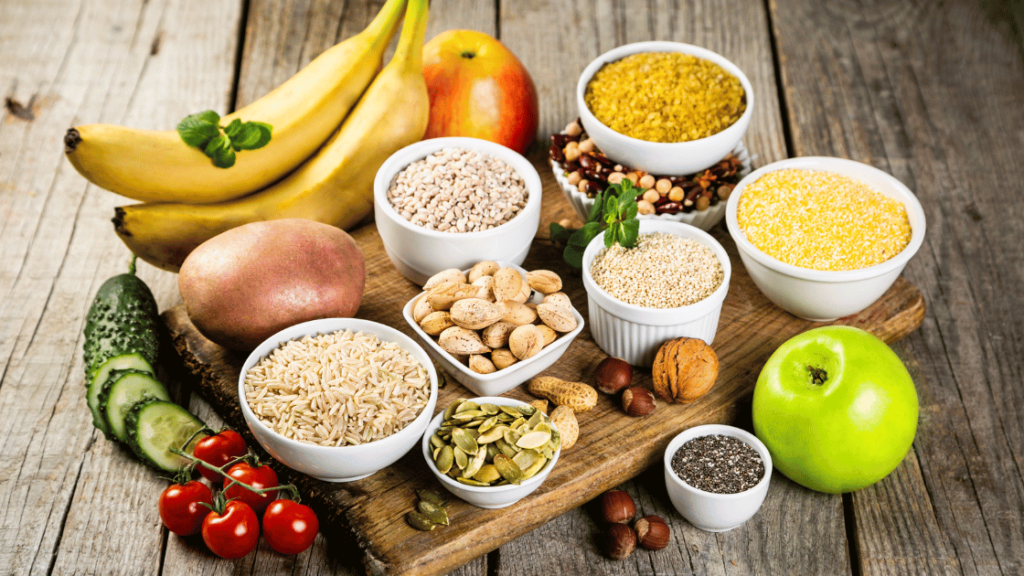
An entirely raw vegan diet may result in nutritional deficiencies. For instance, some raw vegans experience deficiency of vitamin B12 due to insufficient dietary consumption of this nutrient. To increase vitamin B12 consumption on their raw vegan diet they can increase it through supplements or foods containing it such as fortified products or natto and miso.
Raw vegan diets pose another potential complication: their lack of carotenoids such as beta-carotene and lycopene may hinder absorption. This could be caused by inactivating these nutrients during cold pressing processes or by simply eating less of them than usual.
How do i avoid gaining weight on a vegan diet?
Owing to its many health advantages, veganism can offer tremendous health advantages; however, certain mistakes should be avoided to avoid weight gain. These include overeating processed food products, insufficient amounts of protein and vitamin B12 intake and too much fat consumption. It is also crucial that portion sizes are controlled when dining on-the-go; there are various apps and calorie trackers that can assist with this goal.
As another common misstep, using too much oil in food is another mistake that many make. Though oils add flavor, they also lack essential vitamins and nutrients and contain calories which quickly turn to fat storage in your body. Try replacing oil with other options like tahini, apple cider vinegar, yogurt or lemon juice instead for optimal health benefits.
Last but not least, calcium and vitamin D consumption is important. Our bodies require these vitamins to maintain strong bones and teeth. Plant-based sources provide safe access to these vital nutrients; you can find these in foods such as kale, spinach and other leafy greens; beans; almonds and sesame seeds as well. Also essential is iron consumption from nuts or dried fruits.
How to get protein and calcium on a vegan diet?
Vegan diets may provide many health advantages, yet it can be challenging to obtain essential nutrients. Protein, iron, calcium and vitamin B12 should all be consumed on a regular basis through foods like beans and whole grains as well as plant-based protein supplements.
Calcium is essential to healthy teeth, bones and muscles, so consuming foods containing natural calcium sources such as leafy greens, nuts and seeds as well as fortified products may provide enough to meet nutritional requirements in vegan diets. Supplements may also be required in order to meet those nutrient demands.
The Eatwell Guide recommends eating a variety of proteins from plant sources such as legumes, soy products and whole grains to promote bone health. Furthermore, choosing low-fat options, limiting sodium consumption and exercising regularly are also key for supporting bone health. Furthermore, factors beyond one’s control such as being small or female may impact on it too, along with smoking habits, age and heredity affecting its development.
Vegan diets have become increasingly popular and have been studied for their effects on health. Unfortunately, vegan diets may lack certain essential nutrients like protein, vitamin B12, calcium and omega-3 fatty acids; additionally some individuals may require iron supplements.
Veganism may be chosen for various reasons, ranging from ethical and environmental considerations to personal health benefits. Plant-based diets tend to contain more fruits, vegetables, whole grains, nuts and seeds while being lower in fat content.
Is a vegan diet healthy?
Veganism refers to any diet which excludes all forms of animal products from its diet, such as meat, fish and poultry. People choose this lifestyle for various reasons ranging from ethical and environmental considerations, cultural values or desire for improved health. A vegan diet typically features fruits, vegetables, soy foods, nuts and nut butters, beans and legumes, whole grains as well as sprouted or fermented plant foods with only 10-20% calories coming from fat content.
Before embarking on a vegan diet, it is crucial that you understand its nutrient requirements. People who forgo meat may experience nutritional deficits including protein, calcium, vitamin B12, zinc and iron; however, with proper planning of their diet and the use of supplements this can be avoided.
Vegetarian diets can provide all the essential nutrients required for good health if they are properly planned and executed. The key is eating a variety of food each day and limiting consumption of salty or sweet treats or saturated fat-laden items; supplements may be required to ensure sufficient amounts of certain essential vitamins such as protein, iron, zinc, vitamin D or omega-3 fatty acids; pregnant or breastfeeding women must pay extra attention in receiving enough folic acid and iodine while meal planning or finding suitable supplements is managed properly by registered dietitian nutritionists. A registered dietitian nutritionist can assist with meal planning or finding appropriate supplements; an experienced registered dietitian nutritionist can assist in meal planning as well as in helping identify suitable supplements suitable for meal planning by registered dietitian nutritionists or registered dietitian nutritionist can assist meal planning as well as meal planning or finding suitable supplements when necessary.
Is diet coke/pepsi vegan?
Vegan diets can be healthy if they include plenty of fruits and vegetables, soy products, whole grains, legumes, nuts, seeds and fermented plant foods containing essential fiber, protein, vitamins minerals and phytochemicals; plus they help lower cholesterol and blood pressure – two risk factors associated with heart disease.
As nutritious as vegan diets are, they may still present challenges in obtaining all of the required vitamins and nutrients. When cutting back on eggs, meat and dairy, you could be deficient in iron, calcium, omega-3 fatty acids, vitamin D3 and B12. You could supplement with these supplements, but for best results speak to your physician first before making major changes to your diet.
Regular Coke and Diet Coke are both vegan-friendly beverages, yet some people may be concerned that animal byproducts might be used in their natural flavors and colorings. Coca-Cola Great Britain has assured people who may have had concerns that its original Coke contains no animal byproducts; thus it’s safe for vegans.
Pepsi beverages such as Caffeine Free and Real Sugar are suitable for vegans; the company states on its website that all their beverages can be found suitable for this diet. But before purchasing any soda product from Pepsi or its subsidiaries, always read the label thoroughly to identify any animal-derived ingredients, and if any are present inquire about production practices as to whether any contain bone char – used to whiten sugar content of beverages like Pepsi.
Is olive oil vegan diet?
Olive oil is an immensely popular cooking oil used by many to add flavor and texture to their favorite meals, as well as provide essential monounsaturated fats essential for health. Unfortunately, however, some vegans avoid olive oil due to its potentially negative environmental impacts – its production involves deforestation which leads to water pollution; in these instances they may opt for another kind of cooking oil such as coconut.
 Veganism is an environmentally and ethically sustainable lifestyle choice. Vegans forgo any food that comes from animals (like honey, milk cheese or gelatin). Instead they focus on eating plenty of fresh produce including fruits vegetables beans legumes whole grains soy products nuts nut butter seeds sprouted and fermented foods as part of their daily meals.
Veganism is an environmentally and ethically sustainable lifestyle choice. Vegans forgo any food that comes from animals (like honey, milk cheese or gelatin). Instead they focus on eating plenty of fresh produce including fruits vegetables beans legumes whole grains soy products nuts nut butter seeds sprouted and fermented foods as part of their daily meals.
Vegans must ensure they consume sufficient calcium, protein and vitamin B12. As these nutrients are typically found in animal products, vegans must make sure to consume sufficient cruciferous vegetables (broccoli, cauliflower and kale) and dark leafy greens such as spinach and chard to get enough of these vital vitamins. They may also consider taking calcium or vitamin D3 supplements to supplement their diet – although consulting a registered dietitian or physician first is always wise in order to ensure proper nutrient intake.
Can i eat potatoes on a vegan diet?
Veganism involves eliminating foods containing meat, fish and dairy from one’s diet to benefit their health, the environment or ethical principles. Unfortunately, however, following such a regimen without careful planning can be difficult and deficient in certain key nutrients like calcium, iron, vitamin B12, iodine and omega-3 fatty acids; those on such an eating plan should seek out variety in plant-based foods including potatoes to meet all their nutrient requirements.
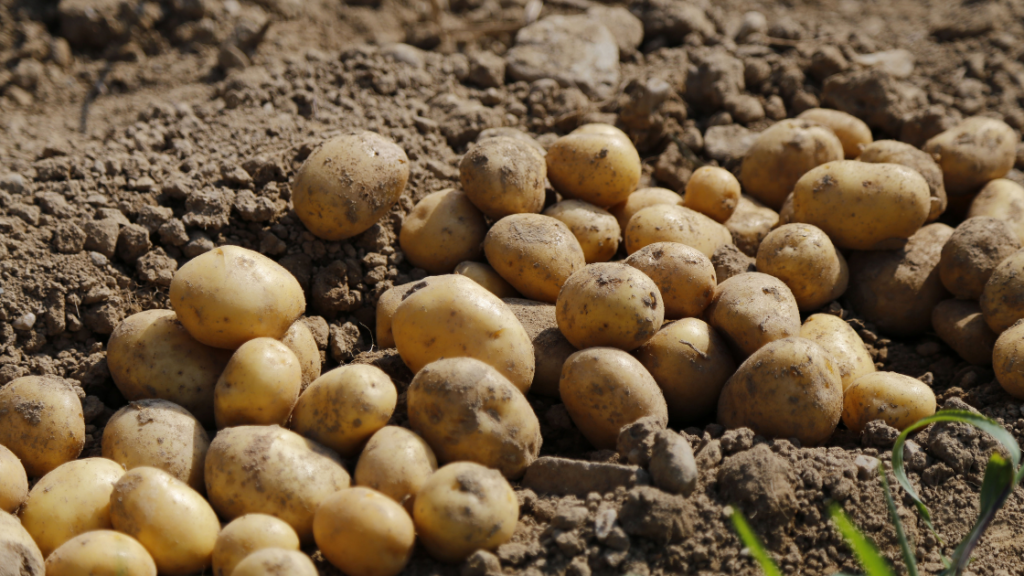 Potatoes provide a rich source of carbohydrates – the primary energy source in our bodies – as well as some protein. Plus, potatoes contain potassium – an essential mineral for heart health – while remaining both low in calories and fat-free. Plus, their versatility means you can prepare them a variety of ways ranging from mashed to roasted!
Potatoes provide a rich source of carbohydrates – the primary energy source in our bodies – as well as some protein. Plus, potatoes contain potassium – an essential mineral for heart health – while remaining both low in calories and fat-free. Plus, their versatility means you can prepare them a variety of ways ranging from mashed to roasted!
Vegans should consume plenty of vegetables, legumes, whole grains and nuts in addition to potatoes in order to meet their nutrient needs. Foods high in iron, zinc, protein and calcium should be prioritized; sun exposure or fortified foods are other sources of vitamin D that they should make sure they get.
Vegans frequently turn to nutritional yeast, with its delicious cheese-like taste and excellent source of vitamin B12. However, some types aren’t vegan-friendly so care must be taken when selecting food ingredients.
Can i eat fish on a vegan diet?
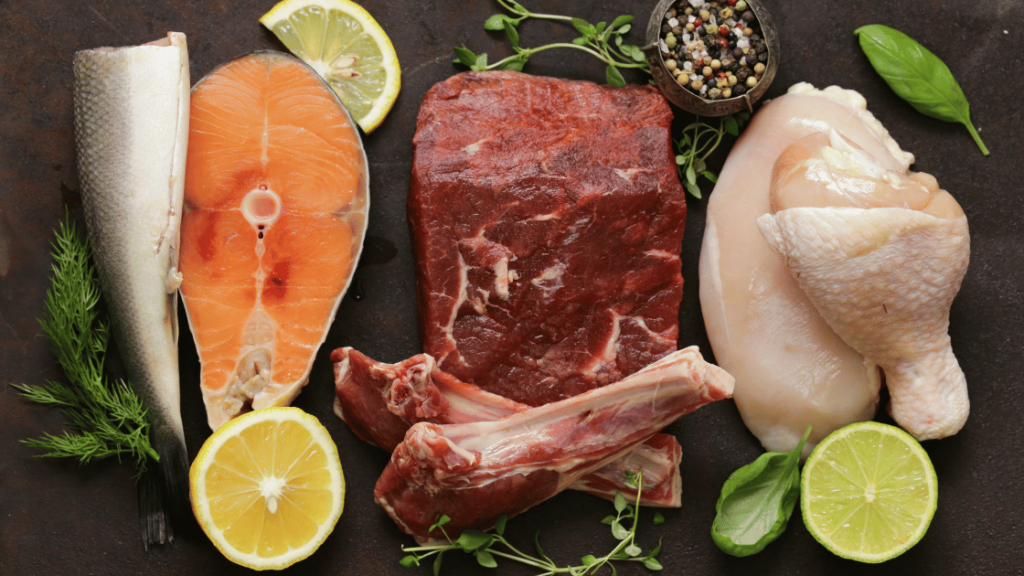 Plant-based diets are eating plans that eliminate foods containing animal products such as meat, eggs, and dairy from one’s diet for ethical or health reasons; numerous religions such as Hinduism and Jainism advocate such diets. A vegan diet provides many essential vitamins and minerals from fruits, vegetables, beans, nuts and whole grains while limiting processed sugars and unhealthy fats for optimal health; making this lifestyle choice an attractive alternative for people suffering from high blood pressure, heart disease or diabetes.
Plant-based diets are eating plans that eliminate foods containing animal products such as meat, eggs, and dairy from one’s diet for ethical or health reasons; numerous religions such as Hinduism and Jainism advocate such diets. A vegan diet provides many essential vitamins and minerals from fruits, vegetables, beans, nuts and whole grains while limiting processed sugars and unhealthy fats for optimal health; making this lifestyle choice an attractive alternative for people suffering from high blood pressure, heart disease or diabetes.
Some forms of plant-based diets include fish. Pescatarianism allows fish and seafood, but excludes meat. An ostrovegan diet (similar to veganism), allows certain shellfish like mussels, clams, oysters and scallops in an otherwise vegan diet. Fish is an excellent source of protein, omega-3 fatty acids, vitamin B12 and iodine but isn’t essential part of plant-based eating plans.
Before making significant dietary changes, it is wise to consult a registered dietitian. A dietitian can help you find a balance between vegan and non-vegan food choices and determine whether you are getting enough essential vitamins and minerals, and recommend supplements accordingly. They can also assist in finding tasty vegan alternatives to familiar recipes.
Conclusion
Vegans avoid all food containing meat, fish or poultry and instead focus on eating plant-based food sources such as whole grains, fruits, vegetables, beans and nuts as well as fortified products containing vitamin B12. Vegans typically consume yeast (a form of bacteria) as well as fortified beverages like soy or rice-based milks with an abundance of B12.
Although many individuals opt to go vegan for health reasons, others choose this diet for ethical or environmental concerns. Newcomers to this lifestyle may find it challenging to get all of the essential nutrients in their diet; therefore it’s advisable for them to consult a healthcare professional or registered dietitian prior to beginning this lifestyle change.
Vegetarians need to ensure that they’re getting enough protein, but also make sure their diet contains sufficient amounts of healthy fats such as avocados, olive oil, nuts and seeds for balance. A typical veggie-based diet typically has much less fat than its American counterpart; therefore it’s essential to include foods rich in these types of healthy lipids like avocados, olive oil, nuts and seeds into their daily regimen.
Vegetarians and vegans should pay particular attention to the nutrients they take in through diet or supplements; calcium, Vitamin D, iron, protein, Vitamin B12 and E should all be present in sufficient amounts. They should strive to consume a diet rich in these essential elements. They should avoid processed or refined foods.
